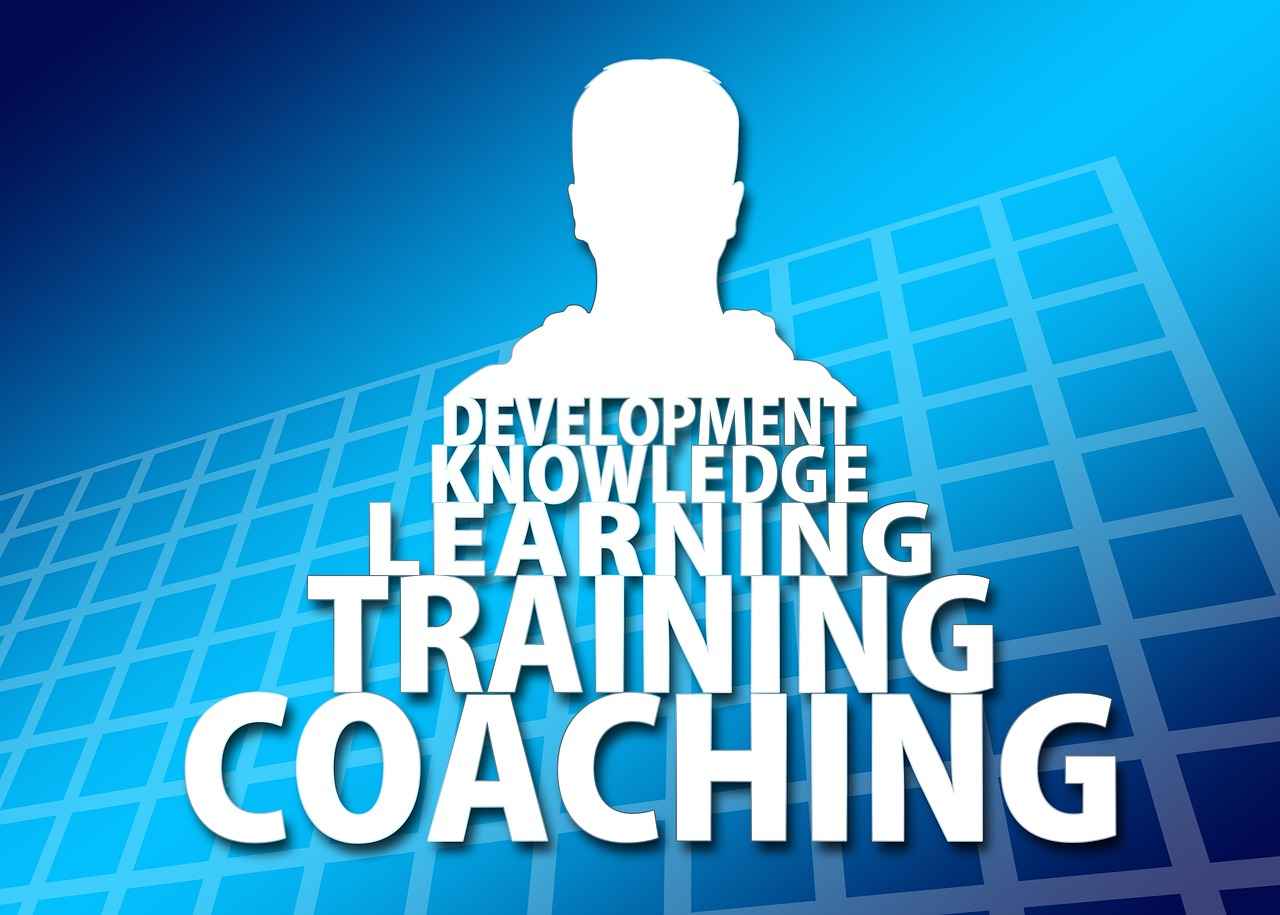This article provides a comprehensive overview of how to find qualified and trustworthy legal representation in Detroit, Michigan, focusing on various common legal cases.
Understanding Common Legal Cases in Detroit
Detroit residents encounter a variety of legal challenges, ranging from personal injury claims to complex family law matters. Familiarizing oneself with the common types of cases can significantly aid individuals in seeking appropriate legal assistance. The legal landscape in Detroit is as diverse as its population, making it essential for residents to understand which type of attorney to approach based on their specific legal needs.
Personal Injury Cases: What You Need to Know
Personal injury claims are among the most frequent legal issues in Detroit, often stemming from accidents, negligence, or intentional harm. Understanding the nuances of these cases is vital for anyone considering legal action. Individuals seeking to file a personal injury claim should consult with an attorney who specializes in this area, ensuring they have the expertise needed to navigate the complexities of personal injury law.
Types of Personal Injury Claims
- Car Accidents
- Slip and Fall Incidents
- Workplace Injuries
- Medical Malpractice
- Product Liability
Each type of claim requires specific knowledge and experience, making it crucial to find a lawyer who has successfully handled similar cases in the past.
Finding a Personal Injury Lawyer
When searching for a personal injury attorney in Detroit, consider factors such as their experience, success rate, and client reviews. Websites like Avvo and FindLaw can provide insights into an attorney’s reputation and track record.
Medical Malpractice: Navigating the Complexities
Medical malpractice cases demand specialized legal knowledge due to their intricate nature. Victims of medical negligence must understand their rights and the legal process involved in pursuing a claim. Consulting with an attorney experienced in medical malpractice is essential to ensure that the case is handled correctly.
Identifying Medical Malpractice
Medical malpractice occurs when a healthcare professional’s negligence results in harm to a patient. Signs of potential malpractice include misdiagnosis, surgical errors, and inadequate follow-up care. Recognizing these signs can help individuals determine whether they have a valid case.
Choosing a Medical Malpractice Attorney
Seek attorneys with a proven track record in medical malpractice cases. Look for credentials such as board certifications and memberships in legal organizations that specialize in medical malpractice, as these can indicate a lawyer’s expertise.
Breach of Contract Cases: Legal Implications
Breach of contract cases are prevalent in business dealings, making it essential for individuals and companies to understand how to address these disputes. Whether it’s an employment contract or a service agreement, knowing the legal implications can help parties navigate the complexities of contract law.
Common Types of Contract Disputes
- Employment Contracts
- Service Agreements
- Sales Contracts
Each type of contract dispute has unique legal considerations, and having a knowledgeable attorney can make a significant difference in the outcome of the case.
Finding a Contract Lawyer
When searching for a contract lawyer, look for individuals with expertise in contract law and a successful history of resolving similar disputes. Online platforms and legal directories can help identify qualified attorneys in Detroit.
Property Disputes: Legal Guidance for Homeowners
Property disputes can arise from various issues, including boundary disputes and landlord-tenant disagreements. Knowing how to find the right attorney is crucial for resolving these matters effectively.
Common Property Disputes
- Boundary Disputes
- Landlord-Tenant Disagreements
- Homeowners Association Issues
Understanding the types of property disputes can help individuals identify their issues and seek appropriate legal guidance.
Choosing a Property Dispute Attorney
Look for attorneys with experience in real estate law and a strong understanding of local property regulations. Credentials such as a real estate law specialization can be beneficial in ensuring effective representation.
Landlord-Tenant Disputes: Protecting Your Rights
Landlord-tenant disputes are common in Detroit and often involve issues such as eviction and lease violations. Knowing how to find a qualified attorney is essential for both landlords and tenants to protect their rights.
Common Issues in Landlord-Tenant Law
- Unpaid Rent
- Property Maintenance Issues
- Lease Violations
Understanding these issues can help both parties seek appropriate legal representation.
Finding a Landlord-Tenant Attorney
Seek attorneys specializing in landlord-tenant law, as they will have the knowledge and experience necessary to navigate these disputes effectively.
Defamation Cases: Understanding Your Rights
Defamation cases, including libel and slander, can significantly impact reputations. Knowing how to find the right attorney is essential for those seeking justice in such cases.
Identifying Defamation
Understanding the difference between libel and slander and recognizing potential defamation can help you determine if you have a case worth pursuing. Consulting with a lawyer experienced in defamation law can provide clarity on your situation.
Choosing a Defamation Lawyer
Seek attorneys with experience in defamation cases and a strong understanding of media law to ensure effective representation.
Employment Disputes: Navigating Workplace Issues
Employment disputes can arise from various issues, including wrongful termination and discrimination. Finding the right attorney is crucial for employees seeking justice.
Common Employment Issues
- Wrongful Termination
- Discrimination
- Harassment
Understanding these issues can help employees identify their rights and seek appropriate legal guidance.
Finding an Employment Lawyer
Look for attorneys specializing in employment law with a proven track record in handling similar disputes effectively.
Product Liability Cases: Holding Manufacturers Accountable
Product liability cases hold manufacturers accountable for defective products. Understanding how to find the right attorney is crucial for victims seeking compensation.
Types of Product Liability Claims
- Design Defects
- Manufacturing Defects
- Inadequate Warnings
Knowing the type of claim can guide your search for legal representation.
Choosing a Product Liability Attorney
Seek attorneys with experience in product liability cases and a strong understanding of consumer protection laws to ensure effective representation.
Wrongful Death Cases: Seeking Justice for Loved Ones
Wrongful death cases require compassionate legal representation. Understanding how to find the right attorney is crucial for families seeking justice.
Understanding Wrongful Death Claims
Wrongful death claims arise when a person’s negligence leads to another’s death. Knowing your rights can help you pursue a valid claim.
Finding a Wrongful Death Lawyer
Look for attorneys specializing in wrongful death cases with a strong track record of successful outcomes to ensure effective representation.
Class Action Lawsuits: Collective Legal Action
Class action lawsuits allow groups of individuals to collectively seek justice. Understanding how to find the right attorney is vital for potential plaintiffs.
Identifying Class Action Cases
Class action cases arise from similar grievances among a group. Recognizing the criteria for class action can help you determine if you qualify.
Choosing a Class Action Attorney
Seek attorneys with experience in class action lawsuits and a proven track record of successful outcomes to ensure effective representation.
Criminal Defense: Protecting Your Rights
Criminal defense cases encompass various offenses, from misdemeanors to felonies. Knowing how to find a qualified attorney is crucial for defendants.
Understanding Criminal Charges
Recognizing the nature of the charges against you can help you seek appropriate legal representation and understand the potential consequences.
Finding a Criminal Defense Lawyer
Look for attorneys specializing in criminal defense with a strong track record in similar cases to ensure effective representation.

Understanding Common Legal Cases in Detroit
In the bustling city of Detroit, residents encounter a myriad of legal challenges that can arise in various aspects of life. From personal injury claims to family law matters, understanding the types of legal cases prevalent in the area is essential for individuals seeking appropriate legal assistance. This knowledge empowers residents to make informed decisions when selecting legal representation, ensuring that they receive the best possible guidance for their unique circumstances.
Legal issues in Detroit can be broadly categorized into several key areas:
- Personal Injury
- Medical Malpractice
- Breach of Contract
- Property Disputes
- Landlord-Tenant Disputes
- Defamation
- Employment Disputes
- Product Liability
- Wrongful Death
- Class Action Lawsuits
Each of these categories encompasses a variety of specific legal issues that can significantly impact individuals and families. For instance, personal injury cases often stem from accidents, negligence, or intentional harm, requiring specialized legal expertise to navigate the complexities of liability and damages. Understanding the intricacies of these cases is crucial for potential plaintiffs seeking legal representation.
Moreover, medical malpractice cases are particularly sensitive, involving allegations against healthcare providers for negligence that results in patient harm. Victims must identify qualified attorneys who specialize in this area to effectively advocate for their rights.
In the realm of family law, issues such as divorce, child custody, and spousal support can be emotionally charged and legally complex. Residents must find attorneys who not only understand the law but also possess the empathy and communication skills necessary to guide clients through these challenging situations.
Furthermore, property disputes can arise from disagreements over ownership, boundaries, or tenant rights, necessitating legal intervention. Similarly, landlord-tenant disputes often involve issues like eviction processes and lease violations, requiring knowledgeable attorneys to protect the rights of both landlords and tenants.
Defamation cases, which include libel and slander, can severely impact an individual’s reputation and livelihood. Understanding how to identify and prove these cases is essential for those seeking justice.
Employment disputes, ranging from wrongful termination to discrimination, also require skilled legal representation to ensure that employees’ rights are upheld in the workplace. Additionally, product liability claims hold manufacturers accountable for defective products that cause harm to consumers, making it vital for victims to find attorneys experienced in this area.
In summary, understanding the common legal cases in Detroit enables residents to seek the right legal assistance tailored to their specific needs. By recognizing the various types of legal issues they may encounter, individuals can make informed choices when selecting qualified attorneys, ensuring they have the best possible support in navigating the legal landscape.

Personal Injury Cases: What You Need to Know
Personal injury cases are a significant aspect of the legal landscape in the United States, particularly in bustling urban environments like Detroit. These cases typically arise from accidents or incidents where negligence is involved, leading to injuries that can have profound effects on victims’ lives. Understanding the complexities of personal injury law is essential for anyone considering filing a claim.
In Detroit, common personal injury cases include car accidents, slip and falls, and workplace injuries. Each of these categories presents unique challenges and requires specific legal expertise. For example, car accident claims often involve insurance negotiations and determining fault, while slip and fall cases may require proving that a property owner was negligent in maintaining safe conditions.
When pursuing a personal injury claim, it is crucial to gather evidence to support your case. This may include medical records, accident reports, and witness statements. The more comprehensive your documentation, the stronger your case will be. Additionally, understanding the statute of limitations for filing a personal injury claim in Michigan is vital, as it can vary based on the type of case.
Finding a qualified personal injury lawyer in Detroit can make a significant difference in the outcome of your case. Here are some essential tips to consider:
- Experience and Specialization: Look for attorneys who specialize in personal injury law. Their experience in handling similar cases can provide you with a competitive advantage.
- Track Record of Success: Research the attorney’s history of successful settlements or verdicts. A proven track record can indicate their effectiveness in the courtroom.
- Client Reviews: Check online reviews and testimonials from previous clients. This feedback can give you insight into their communication style and overall client satisfaction.
- Initial Consultation: Many personal injury lawyers offer free consultations. Use this opportunity to gauge their expertise, approach, and whether you feel comfortable working with them.
- Fee Structure: Understand the lawyer’s fee structure. Most personal injury attorneys work on a contingency basis, meaning they only get paid if you win your case.
Be wary of red flags, such as attorneys who guarantee specific outcomes or those who pressure you into signing contracts quickly. A reputable lawyer will take the time to explain the process and answer your questions thoroughly.
In summary, personal injury cases in Detroit require a nuanced understanding of the law and the ability to navigate complex legal processes. By choosing the right attorney and being well-prepared, you can increase your chances of obtaining the compensation you deserve for your injuries.
Types of Personal Injury Claims
When it comes to personal injury claims, there are a variety of scenarios that can lead to legal action. Understanding these different types is essential for anyone considering filing a claim. Here, we will explore some of the most common types of personal injury claims, including car accidents, slip and falls, and workplace injuries. Each type of claim has its own unique characteristics and requirements, which necessitate specific legal expertise for successful representation.
- Car Accidents: Car accidents are among the most frequent causes of personal injury claims. In the United States, thousands of people are injured or killed in car accidents each year. Factors such as driver negligence, speeding, and distracted driving often play a significant role in these incidents. When pursuing a claim, it is crucial to gather evidence, such as police reports and witness statements, to establish liability.
- Slip and Falls: Slip and fall incidents occur when an individual slips, trips, or falls on someone else’s property due to unsafe conditions, such as wet floors or uneven surfaces. These cases often hinge on the concept of premises liability, which holds property owners responsible for maintaining safe environments. Victims must demonstrate that the property owner was aware of the hazard and failed to address it.
- Workplace Injuries: Workplace injuries can happen in any profession, from construction sites to office environments. Employees injured on the job may be entitled to compensation through workers’ compensation claims. It is essential to report the injury to a supervisor immediately and document all relevant details to strengthen the claim. Legal representation can help navigate the often-complex workers’ compensation system.
- Medical Malpractice: Medical malpractice occurs when a healthcare provider’s negligence results in harm to a patient. This can include errors in diagnosis, treatment, or aftercare. Proving medical malpractice requires expert testimony and a thorough understanding of medical standards of care.
- Defamation: Defamation claims arise when false statements harm an individual’s reputation. This can take the form of libel (written statements) or slander (spoken statements). Victims must prove that the statement was false, damaging, and made with negligence or actual malice.
Each type of personal injury claim requires a tailored approach, and having a knowledgeable attorney can significantly impact the outcome. When searching for a personal injury lawyer, it is vital to consider their experience with specific types of cases, their success rate, and client reviews. A competent attorney will not only understand the nuances of your specific claim but also be able to guide you through the legal process, ensuring that you receive the compensation you deserve.
In conclusion, understanding the various types of personal injury claims is essential for anyone considering legal action. Whether you are dealing with a car accident, slip and fall, or workplace injury, seeking the right legal representation can make all the difference in achieving a favorable outcome.
Finding a Personal Injury Lawyer
When searching for a personal injury lawyer in Detroit, it is essential to consider several key factors to ensure you receive competent legal assistance. The process can be overwhelming, especially if you’re dealing with the aftermath of an accident or injury. Here are some vital aspects to keep in mind:
- Experience: Look for lawyers who have a solid background in personal injury law. An attorney with years of experience will have encountered various cases and understand the nuances involved.
- Success Rate: Investigate the lawyer’s track record in winning cases similar to yours. A high success rate can be an indicator of their capability to effectively advocate for your rights.
- Client Reviews: Reading reviews from past clients can provide insight into a lawyer’s communication style, professionalism, and overall effectiveness. Websites like Avvo and Martindale-Hubbell are excellent resources for finding client feedback.
- Initial Consultation: Many personal injury lawyers offer a free initial consultation. Use this opportunity to discuss your case and assess whether the lawyer is a good fit for your needs.
- Fee Structure: Understand the lawyer’s fee structure. Many personal injury attorneys work on a contingency basis, meaning they only get paid if you win your case. Be sure to clarify any potential costs upfront.
Additionally, consider the lawyer’s communication skills. You want an attorney who is approachable and willing to explain the legal process in understandable terms. A good personal injury lawyer will keep you informed about your case progress and be available to answer any questions you may have.
Networking can also play a crucial role in finding the right attorney. Ask friends, family, or colleagues for recommendations, as personal referrals can lead you to trustworthy lawyers. Furthermore, local bar associations often have referral services that can connect you with qualified attorneys in your area.
In summary, finding a personal injury lawyer in Detroit requires careful consideration of their experience, success rate, and client reviews. By taking the time to research and evaluate potential attorneys, you can ensure that you have competent legal representation to navigate your personal injury claim effectively.

Medical Malpractice: Navigating the Complexities
Medical malpractice cases represent a unique and complex area of law that requires specialized knowledge and experience. These cases arise when a healthcare provider fails to meet the standard of care, resulting in injury or harm to a patient. The intricacies involved in medical malpractice claims make it essential for victims to find the right attorney who can navigate these challenges effectively.
Victims of medical malpractice often face an uphill battle. Proving negligence in healthcare settings is not straightforward and typically requires expert testimony and a thorough understanding of medical practices. This complexity means that not all personal injury attorneys are equipped to handle medical malpractice cases; thus, finding a qualified attorney is critical.
To determine whether you have a valid medical malpractice claim, consider the following factors:
- Standard of Care: Understand what the accepted standard of care is in your specific medical situation. This can vary significantly based on the medical field and the specifics of the case.
- Negligence: Assess whether the healthcare provider acted negligently. This could involve misdiagnosis, surgical errors, or improper treatment.
- Damages: Evaluate the extent of harm caused. Victims must prove that the negligence directly resulted in significant injury or harm.
Recognizing these elements can help you determine if you have a case worth pursuing. If you believe you have experienced medical malpractice, the next step is to find an attorney who specializes in this area of law.
When searching for a medical malpractice attorney, consider the following criteria:
- Experience: Look for attorneys with a proven track record in medical malpractice cases. Their experience will be invaluable in navigating the complexities of your case.
- Success Rate: Investigate the attorney’s success rate in settling or winning malpractice cases. A high success rate can indicate their effectiveness in this specialized field.
- Client Reviews: Read reviews and testimonials from former clients. This can provide insight into the attorney’s communication style, professionalism, and overall client satisfaction.
- Consultation: Many attorneys offer free initial consultations. Use this opportunity to discuss your case and evaluate whether the attorney is a good fit for your needs.
Additionally, ensure that the attorney is licensed and in good standing with the state bar association. This information is typically accessible online and can help you avoid potential red flags.
Another important aspect to consider is the attorney’s willingness to take your case to trial if necessary. Some attorneys may be more inclined to settle out of court, which may not always be in your best interest if the settlement offer is insufficient. Ensure that your attorney is prepared to advocate for you vigorously, whether in negotiations or in court.
In major metropolitan areas like New York City, Los Angeles, and Chicago, there are numerous resources available to help you find qualified medical malpractice attorneys. Online platforms such as Avvo, FindLaw, and Martindale-Hubbell provide comprehensive directories of attorneys, along with client reviews and ratings. Additionally, local bar associations often offer referral services that can connect you with attorneys specializing in medical malpractice.
Be cautious of advertisements that promise quick settlements or large payouts, as they can be misleading. A reputable attorney will provide a realistic assessment of your case and will not make guarantees about outcomes. Trust your instincts; if something feels off during your initial consultations, it may be best to seek representation elsewhere.
In summary, navigating medical malpractice cases requires careful consideration and a thorough understanding of the legal landscape. By identifying the right attorney, you can ensure that your case is handled with the expertise and attention it deserves. Remember, the right legal representation can make all the difference in the outcome of your case.
Identifying Medical Malpractice
Medical malpractice is a serious issue that occurs when a healthcare provider fails to meet the standard of care, resulting in harm to a patient. This negligence can manifest in various ways, including misdiagnosis, surgical errors, and improper treatment. Understanding the signs of medical malpractice is essential for patients who believe they have been wronged by their healthcare providers. Here are some key indicators to help you determine if you may have a valid case:
- Failure to Diagnose: If a healthcare provider fails to diagnose a condition that a competent professional would have identified, this could be grounds for a malpractice claim. For example, a missed cancer diagnosis can lead to severe consequences.
- Improper Treatment: When a healthcare provider administers treatment that is not appropriate for the patient’s condition, it can lead to further complications. This could include administering the wrong medication or dosage.
- Surgical Errors: Mistakes during surgery, such as operating on the wrong site or leaving surgical instruments inside the patient, are clear examples of negligence.
- Informed Consent Violations: Patients have the right to be informed about the risks and benefits of a procedure. If a doctor fails to obtain informed consent, they may be liable for malpractice.
- Negligent Aftercare: After surgery or treatment, a healthcare provider must provide adequate follow-up care. Failing to do so can result in complications that could have been avoided.
To establish a medical malpractice case, a patient must prove four elements:
- Duty of Care: The healthcare provider had a duty to provide care to the patient.
- Breaching Duty: The provider breached that duty through negligent actions or omissions.
- Causation: The breach of duty directly caused the patient’s injury.
- Damages: The patient suffered actual damages as a result of the injury.
If you suspect that you or a loved one has been a victim of medical malpractice, it is crucial to seek legal advice promptly. The statute of limitations for filing a medical malpractice claim varies by state, so timely action is essential to preserve your rights. Consulting with an experienced medical malpractice attorney can help you navigate the complexities of your case and determine the best course of action.
Additionally, when looking for a qualified attorney in major metropolitan areas like New York City, Los Angeles, or Chicago, consider the following:
- Experience: Look for attorneys who specialize in medical malpractice law and have a proven track record of successful outcomes.
- Client Reviews: Research online reviews and testimonials to gauge the attorney’s reputation and client satisfaction.
- Consultation: Many attorneys offer free consultations. Use this opportunity to discuss your case and evaluate their expertise.
- Credentials: Check for board certifications and memberships in professional organizations related to medical malpractice.
- Red Flags: Be wary of attorneys who guarantee results or demand large upfront fees. A reputable attorney will discuss fees transparently and work on a contingency basis.
In conclusion, identifying medical malpractice requires a keen understanding of the signs and legal principles involved. If you believe you have a case, don’t hesitate to consult with a qualified attorney who can help you navigate the complexities of the legal system and advocate for your rights.
Choosing a Medical Malpractice Attorney
When it comes to medical malpractice, finding the right attorney is crucial. These cases are often complex and require a deep understanding of both legal and medical principles. Therefore, it is essential to seek attorneys who specialize in this field. Here are some key considerations to help you in your search.
- Experience in Medical Malpractice: Look for attorneys who have a proven track record in handling medical malpractice cases. They should have experience with cases similar to yours, whether it involves surgical errors, misdiagnosis, or medication mistakes.
- Knowledge of Medical Terminology: A competent attorney should be well-versed in medical terminology and procedures. This knowledge is vital for effectively communicating with medical experts and understanding the nuances of your case.
- Successful Case Outcomes: Research the attorney’s history of successful verdicts or settlements in medical malpractice cases. This information can often be found on their website or through legal directories.
- Client Testimonials: Reading reviews and testimonials from former clients can provide insight into the attorney’s communication style, professionalism, and overall effectiveness. Look for attorneys who are praised for their empathy and dedication.
- Initial Consultation: Many attorneys offer a free initial consultation. Use this opportunity to ask questions about their experience and approach to your case. Pay attention to how they communicate and whether they take the time to listen to your concerns.
- Fee Structure: Medical malpractice attorneys typically work on a contingency fee basis, meaning they only get paid if you win your case. Make sure to clarify their fee structure upfront to avoid any surprises later on.
- Professional Affiliations: Check if the attorney is a member of professional organizations, such as the American Association for Justice or state bar associations. Membership in these organizations often indicates a commitment to staying updated on legal developments in medical malpractice.
- Red Flags to Avoid: Be cautious of attorneys who guarantee results, as no outcome can be assured in legal cases. Additionally, avoid those who seem more interested in settling quickly rather than pursuing the best outcome for your case.
In summary, choosing the right medical malpractice attorney involves thorough research and consideration of various factors. By focusing on experience, knowledge, and client feedback, you can find a qualified attorney who will advocate for your rights effectively.

Breach of Contract Cases: Legal Implications
Breach of contract cases are a frequent occurrence in the realm of business dealings, affecting both individuals and organizations. These disputes arise when one party fails to fulfill their obligations as stipulated in a legally binding agreement. Understanding the nuances of these cases is essential for anyone engaged in contractual relationships, as the implications can be both financially and legally significant.
In the United States, contracts can range from simple verbal agreements to complex written documents. Common types of contracts that may lead to disputes include employment contracts, service agreements, and sales contracts. Each of these agreements comes with its own set of legal considerations, and knowing how to navigate these waters can be crucial for effective resolution.
- Employment Contracts: Disputes often arise over terms of employment, including salary, job responsibilities, and termination conditions.
- Service Agreements: Issues may occur when one party fails to deliver services as promised, leading to claims for damages.
- Sales Contracts: Breaches can happen if goods are not delivered on time or do not meet the agreed-upon specifications.
To effectively handle a breach of contract case, it’s critical to first identify the nature of the breach. There are generally two types of breaches: material breaches, which significantly impair the contract’s value, and minor breaches, which may only cause slight inconveniences. Understanding this distinction can help determine the appropriate legal recourse.
When seeking legal representation for a breach of contract case, it is vital to choose an attorney with specific expertise in contract law. Here are some practical steps to find the right lawyer:
- Research Credentials: Look for attorneys who specialize in contract law and have a proven track record in similar cases.
- Check Reviews: Online platforms such as Avvo and Martindale-Hubbell provide client reviews and ratings that can help gauge an attorney’s reputation.
- Consultation Meetings: Schedule initial consultations to discuss your case and assess the lawyer’s understanding of contract law.
- Experience Matters: Inquire about the attorney’s experience with breach of contract cases and their success rates in resolving such disputes.
Additionally, be cautious of red flags when hiring a lawyer. Avoid those who guarantee outcomes, as legal matters can be unpredictable. Also, be wary of attorneys who lack transparency regarding their fees or who push for quick settlements without fully exploring your options.
In major metropolitan areas like New York City, Los Angeles, and Chicago, the legal market can be competitive. Utilize local bar associations or legal aid organizations to find reputable lawyers. Networking with business professionals or seeking referrals from trusted sources can also lead you to qualified attorneys.
Ultimately, understanding the legal implications of breach of contract cases and knowing how to find a qualified lawyer is essential for anyone involved in business dealings. By being informed and proactive, you can protect your rights and navigate the complexities of contract law effectively.
Common Types of Contract Disputes
Contract disputes are an inevitable part of business and personal interactions. These disputes can stem from various agreements, including but not limited to employment contracts, service agreements, sales contracts, and lease agreements. Each type of contract comes with its own set of legal implications and considerations, making it essential for individuals and businesses alike to understand the nuances involved.
Employment Contracts: Disputes regarding employment contracts often arise from misunderstandings about job duties, compensation, or termination conditions. Employees may feel wronged if they believe their employer has violated the terms of the contract, such as failing to provide promised benefits or engaging in wrongful termination. Employers, on the other hand, may dispute claims of breach if they believe the employee has not fulfilled their obligations. It is crucial for both parties to have clear documentation and communication to minimize potential conflicts.
Service Agreements: In service agreements, disputes can occur when one party fails to deliver the promised services or when the quality of the services rendered does not meet the agreed-upon standards. For instance, contractors may face disputes over project timelines, costs, or the quality of work completed. To avoid such issues, it is advisable to have detailed contracts that specify the scope of work, deadlines, and payment terms.
Sales Contracts: Sales contracts can lead to disputes when there are disagreements about the terms of sale, delivery timelines, or product quality. Buyers may claim that the goods received do not match the description or that they were delivered late, while sellers may argue that the buyer failed to meet payment terms. To mitigate these disputes, both parties should ensure that all terms are explicitly outlined in the contract and that both parties understand their rights and obligations.
Lease Agreements: Lease agreements often lead to disputes between landlords and tenants. Common issues include disagreements over rent payments, maintenance responsibilities, and lease violations. Tenants may feel that their landlords are not fulfilling their obligations, such as making necessary repairs, while landlords may claim that tenants are not adhering to the lease terms. Clear communication and documentation of all agreements can help reduce these conflicts.
In summary, understanding the common types of contract disputes is essential for anyone entering into a legal agreement. By being aware of potential issues and ensuring that contracts are clear and comprehensive, both parties can work towards preventing disputes. However, when disputes do arise, seeking legal counsel experienced in contract law is crucial for navigating the complexities of these cases.
When it comes to finding a competent contract lawyer, individuals should consider the following:
- Experience: Look for attorneys who specialize in contract law and have a proven track record in handling similar disputes.
- Client Reviews: Check online reviews and testimonials to gauge the attorney’s reputation and effectiveness.
- Consultation: Many attorneys offer free consultations. Use this opportunity to assess their approach and expertise.
- Credentials: Verify the attorney’s credentials, including their education, bar association membership, and any specialized certifications.
- Red Flags: Be wary of attorneys who guarantee outcomes, have poor communication skills, or lack transparency in their fees.
By following these guidelines, individuals can find qualified legal representation to help them navigate the complexities of contract disputes effectively.
Finding a Contract Lawyer
When facing a breach of contract issue, it is essential to find a qualified attorney who specializes in contract law. A skilled attorney can navigate the complexities of your case and advocate for your rights effectively. Here are some key steps to consider when searching for a contract lawyer:
- Identify Your Needs: Before beginning your search, determine the specifics of your case. Are you dealing with a commercial contract, a service agreement, or perhaps an employment contract? Understanding the nature of your dispute will help you find an attorney with the appropriate expertise.
- Research Potential Attorneys: Start by looking for attorneys who specialize in contract law. Utilize online legal directories such as Avvo or FindLaw to locate lawyers in your area. You can filter your search by practice area, location, and client reviews.
- Check Credentials and Experience: When evaluating potential attorneys, consider their educational background, years of experience, and any specialized training in contract law. Look for lawyers who have successfully handled cases similar to yours, as this can indicate their ability to navigate the specifics of your situation.
- Review Client Feedback: Reading reviews and testimonials from previous clients can provide valuable insights into an attorney’s effectiveness and communication style. Look for patterns in feedback, such as responsiveness, professionalism, and successful outcomes.
- Schedule Consultations: Most attorneys offer an initial consultation, often free of charge. Use this opportunity to discuss your case and ask questions about their approach. Pay attention to how well they communicate and whether they seem genuinely interested in helping you.
- Assess Their Communication Style: Effective communication is crucial in any attorney-client relationship. Ensure that the attorney explains legal concepts in a way you understand and is willing to answer your questions thoroughly.
- Evaluate Their Track Record: Inquire about the attorney’s success rate in handling breach of contract cases. A proven track record in resolving similar disputes can provide confidence in their ability to represent you effectively.
- Discuss Fees and Payment Structures: Understanding the attorney’s fee structure is essential to avoid any surprises later. Some attorneys charge hourly rates, while others may work on a contingency basis. Ensure you have a clear understanding of all potential costs involved.
- Look for Red Flags: Be wary of attorneys who make unrealistic promises or guarantees regarding the outcome of your case. Additionally, if an attorney seems disorganized or unprepared during your consultation, it may be a sign to look elsewhere.
By following these steps, you can increase your chances of finding a competent and trustworthy contract lawyer who can effectively represent your interests in a breach of contract dispute. Remember, the right attorney can make a significant difference in the outcome of your case.

Property Disputes: Legal Guidance for Homeowners
Property disputes can create significant challenges for homeowners and tenants alike. These disputes often arise from various issues, including boundary disputes, disagreements over property lines, and landlord-tenant conflicts, which may involve lease violations or eviction proceedings. Understanding these disputes and knowing how to find the right attorney is crucial for effective resolution.
Property disputes can take many forms, but some of the most common types include:
- Boundary Disputes: These occur when two property owners disagree on the exact location of their property lines.
- Landlord-Tenant Disputes: Issues such as eviction, security deposits, and maintenance responsibilities often lead to conflicts.
- Adverse Possession: This legal doctrine allows a person to claim ownership of land under certain conditions, which can lead to disputes with the original owner.
- Easement Disputes: These arise when one property owner believes they have the right to use a portion of another’s property.
- Homeowners Association (HOA) Conflicts: Disputes can occur over rules, fees, and property modifications.
When seeking legal representation for property disputes, consider the following factors:
- Experience in Real Estate Law: Look for attorneys who specialize in real estate law and have a proven track record in handling property disputes.
- Local Knowledge: An attorney familiar with local property laws and regulations can provide invaluable insights and guidance.
- Client Reviews: Research client testimonials and reviews to gauge the attorney’s reputation and effectiveness.
- Communication Skills: Choose an attorney who communicates clearly and promptly, as this is essential for a successful attorney-client relationship.
- Fee Structure: Understand the attorney’s fee structure upfront. This includes hourly rates, retainer fees, and any additional costs that may arise.
Additionally, it is wise to conduct initial consultations with multiple attorneys to compare their approaches and determine who you feel most comfortable working with. During these consultations, ask about their experience with cases similar to yours and inquire about their strategies for resolution.
Finding the right attorney for property disputes is crucial for protecting your rights and interests. By understanding the common types of property disputes and knowing what to look for in an attorney, homeowners can navigate these challenging situations more effectively.
Common Property Disputes
Property disputes can arise from a variety of issues, and understanding the different types can significantly aid homeowners and tenants in identifying their specific problems. These disputes often occur in the context of real estate transactions, landlord-tenant relationships, or even between neighbors. By recognizing the nature of the dispute, individuals can seek appropriate legal guidance to resolve their issues effectively.
- Boundary Disputes: These disputes often occur when property lines are unclear or contested. Homeowners may find themselves in conflict with neighbors over where one property ends and another begins. It is essential to have a survey conducted to establish legal property boundaries.
- Landlord-Tenant Disagreements: Issues such as unpaid rent, eviction notices, and maintenance responsibilities can lead to significant disputes between landlords and tenants. Understanding the rights and responsibilities outlined in lease agreements is crucial for both parties.
- Title Disputes: These arise when there is a question regarding the ownership of a property. Issues may stem from unpaid liens, inheritance claims, or errors in public records. Resolving title disputes often requires legal intervention to clarify ownership rights.
- Easement Conflicts: Property owners may have disagreements over easements, which allow one party to use a portion of another’s property for a specific purpose, such as access to a road. Clarity on the terms of the easement is essential to avoid disputes.
- Homeowners Association (HOA) Issues: Disputes can arise from HOA regulations and enforcement. Homeowners may contest fines, rules, or decisions made by the HOA board. Understanding the governing documents of the HOA is critical for resolving such issues.
Recognizing these common property disputes is the first step toward resolution. Once individuals identify the nature of their dispute, seeking legal assistance becomes paramount. Here are some strategies for finding the right attorney:
- Research Local Attorneys: Start by searching for attorneys specializing in real estate or property law within your area. Websites like Avvo and FindLaw can provide listings and reviews.
- Check Credentials: Look for attorneys with a solid background in property disputes, preferably with certifications or memberships in legal associations such as the American Bar Association.
- Read Reviews: Client testimonials and reviews can provide insight into an attorney’s effectiveness and approach. Look for patterns in feedback regarding communication, responsiveness, and success rates.
- Consult Multiple Attorneys: Schedule consultations with several attorneys to discuss your case. This will give you a sense of their expertise, approach, and whether you feel comfortable working with them.
- Avoid Red Flags: Be cautious of attorneys who guarantee outcomes, have poor communication skills, or lack transparency regarding fees. Trust your instincts when assessing their professionalism.
By understanding the common types of property disputes and knowing how to find qualified legal representation, individuals can navigate these challenges with greater confidence and clarity. Engaging an experienced attorney can help ensure that your rights are protected and that you achieve a favorable resolution.
Choosing a Property Dispute Attorney
When navigating the complexities of property disputes, it is crucial to have the right legal representation. can significantly impact the outcome of your case. Here are some essential steps to help you find a qualified attorney who can effectively represent your interests.
First and foremost, seek attorneys with specialized experience in real estate law. This expertise is vital as property disputes can involve various legal issues, including boundary disputes, easements, and landlord-tenant conflicts. An attorney who specializes in real estate law will have a thorough understanding of local property regulations and the nuances of the law that can influence your case.
Next, consider the attorney’s track record. Look for professionals who have successfully handled similar cases in the past. You can often find this information through online reviews, testimonials, or by asking for references. A proven history of successful outcomes in property dispute cases can provide you with confidence in their abilities.
Additionally, it is important to evaluate the attorney’s communication style. You want someone who is not only knowledgeable but also able to explain complex legal concepts in a way that you can understand. During your initial consultation, pay attention to how well the attorney listens to your concerns and addresses your questions. A good attorney will take the time to understand your unique situation and provide tailored advice.
Another critical factor is the attorney’s local knowledge. Property laws can vary significantly from one jurisdiction to another. An attorney who is well-versed in local regulations will be better equipped to navigate the specific challenges you may face in your case. This local expertise can also be beneficial in negotiations and court proceedings, as they may have established relationships with local judges and other legal professionals.
Finally, be wary of red flags when selecting a property dispute attorney. For instance, if an attorney guarantees a specific outcome, it is a sign to proceed with caution. Legal matters are inherently uncertain, and no attorney can promise a particular result. Additionally, be mindful of attorneys who pressure you into making quick decisions or who do not provide a clear breakdown of their fees and billing practices. Transparency is key in any attorney-client relationship.
In summary, when choosing a property dispute attorney, focus on their experience in real estate law, track record, communication style, local knowledge, and be aware of potential red flags. Following these guidelines will help ensure that you find a qualified attorney who can effectively represent your interests in property disputes.

Landlord-Tenant Disputes: Protecting Your Rights
Landlord-tenant disputes are a frequent occurrence in urban areas like Detroit, where the housing market can be competitive and challenging. These disputes often arise from issues such as eviction, lease violations, and unpaid rent. Understanding your rights as a tenant or landlord is crucial for navigating these conflicts effectively.
For tenants, knowing your rights can help prevent unjust evictions and ensure that landlords fulfill their obligations regarding property maintenance. Common disputes include:
- Failure to Make Repairs: Landlords are required to maintain safe and habitable living conditions. If they fail to do so, tenants may have grounds to withhold rent or pursue legal action.
- Security Deposit Issues: Disagreements can arise over the return of security deposits, especially if landlords claim damages that tenants dispute.
- Lease Violations: Landlords may seek eviction for alleged lease violations, which can sometimes be unfounded or exaggerated.
On the other hand, landlords must also protect their interests. They have the right to:
- Collect Rent: If tenants fail to pay rent, landlords can initiate eviction proceedings.
- Set Reasonable Rules: Landlords can enforce rules regarding property use, provided they are clearly stated in the lease agreement.
- Access the Property: Landlords have the right to enter rental units for maintenance and inspections, but they must provide adequate notice to tenants.
Finding a qualified attorney for landlord-tenant disputes is essential for both parties. Here are some tips to help you locate the right legal representation:
Seek attorneys who specialize in landlord-tenant law. These professionals will have the necessary knowledge and experience to handle disputes effectively. You can start your search by checking local bar associations or legal directories.
When evaluating potential attorneys, consider their credentials. Look for lawyers who are members of relevant legal associations, such as the American Bar Association or local housing law groups. This indicates a commitment to staying updated on legal developments.
Online reviews can provide insight into an attorney’s reputation and success rate. Websites like Avvo and Martindale-Hubbell offer ratings and client feedback that can help you make an informed decision.
Many attorneys offer free initial consultations. Use this opportunity to discuss your case and assess whether the attorney understands your needs and has a strategy for your situation.
Be cautious of attorneys who guarantee specific outcomes, as no lawyer can predict the result of a legal dispute. Additionally, avoid those who pressure you into signing contracts or paying upfront fees without clearly explaining the services provided.
Landlord-tenant disputes can be complex and emotionally charged. By understanding your rights and knowing how to find the right legal representation, you can navigate these challenges more effectively. Whether you are a tenant facing eviction or a landlord dealing with a problematic tenant, having a knowledgeable attorney on your side can make a significant difference in the outcome of your case.
Common Issues in Landlord-Tenant Law
Understanding landlord-tenant law is crucial for both parties involved in a rental agreement. Disputes often arise, and being informed can help in resolving these issues efficiently. Below, we delve into some common issues faced in landlord-tenant relationships, emphasizing the importance of legal representation and guidance.
One of the most frequent disputes between landlords and tenants is unpaid rent. When tenants fail to pay rent on time, landlords may feel compelled to take legal action. However, it is essential for landlords to understand the legal processes involved in eviction and the potential consequences of rushing to court. Landlords should consider:
- Sending a formal notice to the tenant, providing them with an opportunity to pay the overdue amount.
- Understanding state laws regarding eviction processes, as these can vary significantly.
- Consulting with a lawyer who specializes in landlord-tenant law to ensure compliance with all legal requirements.
Another common issue arises from property maintenance. Tenants often expect landlords to maintain the property in a habitable condition, which includes necessary repairs and upkeep. When landlords neglect these responsibilities, tenants may have grounds for legal action. Key points to consider include:
- Tenants should document all maintenance requests and communications with their landlords.
- Landlords must be aware of their obligations under local housing codes and laws.
- Both parties should understand the process for addressing maintenance issues, including potential legal remedies.
Lease violations can lead to disputes that may escalate quickly. Common violations include unauthorized pets, excessive noise, or illegal activities on the premises. To address these issues:
- Landlords should clearly outline lease terms and ensure tenants understand their responsibilities.
- Tenants should familiarize themselves with the lease agreement to avoid accidental violations.
- Both parties should communicate effectively to resolve issues before they escalate into legal disputes.
Security deposits are another area where disputes frequently arise. Landlords may withhold security deposits for damages, while tenants may argue that the deductions are unjust. To navigate these disputes:
- Landlords should provide detailed documentation of any damages and costs incurred.
- Tenants should understand their rights regarding security deposit returns and the timeframes involved.
- Consulting with a legal professional can clarify the rights and responsibilities of both parties concerning security deposits.
When disputes arise, having a qualified attorney can make a significant difference. Here are some tips for finding the right legal representation:
- Look for attorneys who specialize in landlord-tenant law and have experience in your state.
- Check online reviews and testimonials to gauge the attorney’s reputation and success rate.
- Schedule consultations to discuss your specific situation and assess the attorney’s approach.
- Avoid attorneys who make unrealistic promises or guarantees regarding the outcome of your case.
In conclusion, understanding common landlord-tenant issues, such as unpaid rent and property maintenance, can empower both parties to seek appropriate legal representation when necessary. By being informed and proactive, landlords and tenants can navigate disputes more effectively, ultimately leading to better outcomes.
Finding a Landlord-Tenant Attorney
Finding the right attorney can be a daunting task, especially when dealing with landlord-tenant disputes. These disputes can arise from various issues, including unpaid rent, lease violations, or eviction proceedings. Therefore, it is crucial to seek legal representation that specializes in landlord-tenant law to ensure your rights are protected.
When searching for a landlord-tenant attorney, consider the following factors:
- Specialization: Look for attorneys who specifically focus on landlord-tenant law. This specialization means they have a comprehensive understanding of the relevant statutes and case law that govern these disputes.
- Experience: An attorney with substantial experience in handling landlord-tenant cases will be more adept at navigating the complexities of your situation. Ask potential attorneys about their track record with similar cases.
- Client Reviews: Reading reviews and testimonials from previous clients can provide insight into the attorney’s effectiveness and client service. Look for patterns in feedback regarding communication, professionalism, and outcomes.
- Consultation: Many attorneys offer free consultations. Use this opportunity to assess their approach, ask questions about your case, and gauge your comfort level with them.
- Fees: Understand the attorney’s fee structure upfront. Some may charge a flat fee, while others bill by the hour. Ensure that you are clear about costs to avoid any surprises later on.
In major metropolitan areas like New York City, Los Angeles, and Chicago, you can find qualified attorneys through various platforms:
- State Bar Associations: Most states have a bar association that offers a lawyer referral service. This can be a reliable way to find qualified attorneys who specialize in landlord-tenant law.
- Legal Aid Organizations: If you are facing financial difficulties, legal aid organizations can provide assistance or refer you to attorneys who offer pro bono services.
- Online Legal Directories: Websites like Avvo, FindLaw, and Justia allow you to search for attorneys based on their specialties and read reviews from clients.
As you begin your search, keep an eye out for red flags that may indicate a less-than-reputable attorney:
- Lack of Communication: If an attorney is difficult to reach or does not respond promptly to your inquiries, it may be a sign of poor client service.
- Pressure to Sign: Be wary of any attorney who pressures you to sign a contract or agree to representation without giving you adequate time to consider your options.
- Unclear Fees: An attorney who cannot clearly explain their fee structure or provides vague estimates may lead to unexpected costs.
In summary, finding a qualified landlord-tenant attorney requires thorough research and careful consideration. By focusing on specialization, experience, and client feedback, you can identify an attorney who will effectively represent your interests in landlord-tenant disputes. Whether you are a tenant facing eviction or a landlord dealing with lease violations, having the right legal support can make a significant difference in the outcome of your case.

Defamation Cases: Understanding Your Rights
Defamation cases, which encompass both libel and slander, are serious legal matters that can have profound effects on an individual’s or organization’s reputation. In today’s digital age, where information spreads rapidly, understanding your rights and knowing how to find the right attorney is crucial for anyone who believes they have been defamed.
Defamation occurs when false statements are made about a person or entity that damage their reputation. Libel refers to written defamation, while slander pertains to spoken defamation. Each type of defamation has its own legal nuances, and understanding these differences can significantly impact the outcome of a case.
To determine if you have a valid defamation case, you must first understand the elements that constitute defamation. These typically include:
- False Statement: The statement made must be false. Truth is an absolute defense against defamation.
- Publication: The statement must be communicated to someone other than the person defamed.
- Harm: The statement must cause harm to the reputation of the person or entity.
- Fault: Depending on the plaintiff’s status (public figure vs. private individual), different standards of fault apply.
Recognizing these elements can help you ascertain whether you have a legitimate claim. If you believe you have been a victim of defamation, it’s essential to act quickly, as statutes of limitations can vary by state.
Finding the right attorney to handle your defamation case is critical for a successful outcome. Here are some practical steps to consider:
- Experience: Look for attorneys who specialize in defamation law, particularly those with a strong understanding of media law and free speech issues.
- Track Record: Review the attorney’s past cases and success rates in defamation lawsuits. This information can often be found on their websites or through legal directories.
- Client Reviews: Seek testimonials or reviews from previous clients to gauge their satisfaction and the attorney’s effectiveness.
- Initial Consultation: Many attorneys offer free initial consultations. Use this opportunity to discuss your case and assess the attorney’s approach and compatibility with your needs.
- Fees: Understand the fee structure. Some attorneys work on a contingency basis, meaning they only get paid if you win your case, while others may charge hourly rates.
When searching for a defamation attorney, utilizing platforms such as Avvo, FindLaw, and Martindale-Hubbell can provide valuable information on qualified lawyers in your area. These platforms offer client reviews, ratings, and detailed profiles, making it easier to compare potential candidates.
While searching for legal representation, be vigilant for potential red flags that may indicate a less-than-reputable attorney:
- Lack of Specialization: Be cautious of attorneys who do not specialize in defamation or related fields. General practitioners may not have the necessary expertise.
- Poor Communication: If an attorney is difficult to reach or does not respond promptly to inquiries, it may be a sign of their commitment level.
- Unclear Fee Structures: Avoid attorneys who are not transparent about their fees or who pressure you into signing contracts without fully explaining the terms.
- Negative Reviews: While every attorney may have a few negative reviews, a consistent pattern of poor feedback should raise concerns.
In conclusion, navigating a defamation case can be complex and emotionally taxing. However, by understanding the legal landscape and knowing how to find the right attorney, you can effectively advocate for your rights and seek justice. Remember to be thorough in your search, ask the right questions, and choose a lawyer who not only has the experience but also aligns with your personal values and communication style.
Identifying Defamation
Defamation is a serious legal issue that can have significant consequences for individuals and businesses alike. Understanding the nuances, particularly the differences between libel and slander, is crucial for anyone who believes their reputation has been harmed. In this section, we will explore how to identify defamation and the steps you can take to determine if you have a valid case.
Defamation occurs when false statements are made about an individual or entity that damage their reputation. It is essential to recognize that defamation can manifest in two primary forms: libel and slander.
- Libel: This refers to defamation that occurs in a permanent form, such as written statements, published articles, or online content. For example, if someone writes a false review about your business or publishes an article that misrepresents your actions, you may have a libel case.
- Slander: This involves spoken statements that defame an individual. For instance, if someone spreads false rumors about you verbally, causing harm to your reputation, this could be classified as slander.
To identify whether you have a case of defamation, consider the following criteria:
- False Statement: The statement made must be false. Truth is a complete defense against defamation claims.
- Publication: The false statement must have been communicated to a third party. This means that someone other than you must have heard or seen the defamatory statement.
- Harm: You must demonstrate that the statement caused you harm, such as loss of income, emotional distress, or damage to your reputation.
- Negligence or Actual Malice: Depending on your status (public figure or private individual), you may need to prove that the statement was made with negligence or actual malice.
If you believe you have been a victim of defamation, it is crucial to document the incident thoroughly. Keep records of the statements made, any witnesses, and the context in which the statements were made. This documentation will be vital if you decide to pursue legal action.
Furthermore, consulting with a qualified attorney who specializes in defamation cases is essential. They can provide you with the necessary guidance and help you navigate the complexities of defamation law. Look for a lawyer with a successful track record in handling similar cases and who understands the nuances of both libel and slander.
In conclusion, recognizing the difference between libel and slander and understanding the elements of defamation can empower you to take action if your reputation has been unjustly harmed. With the right legal support, you can seek justice and protect your rights.
Choosing a Defamation Lawyer
When it comes to defamation cases, selecting the right attorney is crucial for achieving a favorable outcome. Defamation, which encompasses both libel (written statements) and slander (spoken statements), can have severe implications for an individual’s reputation and livelihood. Therefore, it is essential to seek legal representation that not only understands the nuances of defamation law but also possesses a solid grasp of media law.
First and foremost, consider attorneys who specialize in defamation cases. Their expertise will equip them with the necessary skills to navigate the complexities of these claims. Look for lawyers with a proven track record in handling defamation lawsuits, as their experience can significantly affect the outcome of your case. A successful defamation attorney will have a history of winning cases or achieving favorable settlements, which can be verified through client testimonials and case results.
Next, it is vital to assess the attorney’s understanding of media law. Defamation cases often intersect with issues related to freedom of speech and press, making it essential for your lawyer to be well-versed in these areas. An attorney who understands the balance between protecting reputations and upholding the First Amendment can provide you with a more comprehensive defense strategy. Ask potential lawyers about their experience with media law and how they have applied this knowledge in previous cases.
Another important factor to consider is the attorney’s communication style. A good lawyer should be able to explain complex legal concepts in a way that you can easily understand. During your initial consultation, pay attention to how well the lawyer listens to your concerns and whether they provide clear answers to your questions. Effective communication is critical in building a strong attorney-client relationship, especially in sensitive cases like defamation.
Additionally, look for attorneys who are active members of relevant legal organizations, such as the American Bar Association or local bar associations. Membership in these organizations often indicates a commitment to staying updated on the latest developments in the law, which can be particularly beneficial in a rapidly evolving field like defamation and media law.
When searching for a defamation lawyer, consider utilizing online legal directories and platforms that allow you to filter attorneys based on their specialties and geographical locations. Websites like Avvo and FindLaw provide valuable information, including client reviews, ratings, and background information about attorneys. These platforms can help you narrow down your options and find qualified candidates in your area.
Finally, be cautious of red flags when hiring a defamation lawyer. Avoid attorneys who make unrealistic promises or guarantees about the outcome of your case. Legal matters can be unpredictable, and any reputable lawyer will discuss potential risks and challenges openly. Additionally, be wary of lawyers who seem more interested in billing hours than in understanding your case. A trustworthy attorney will prioritize your needs and work diligently to achieve the best possible outcome for you.
In conclusion, choosing the right defamation lawyer is a critical step in protecting your reputation and seeking justice. By focusing on experience, knowledge of media law, effective communication, and utilizing reputable resources, you can find a qualified attorney who will represent your interests effectively.

Employment Disputes: Navigating Workplace Issues
Employment disputes can take many forms, often stemming from issues such as wrongful termination, discrimination, and harassment. These disputes can lead to significant emotional and financial stress for employees, making it essential to understand your rights and the legal options available. When faced with such challenges, finding the right attorney is crucial for navigating the complexities of employment law and seeking justice.
Employment disputes typically arise from various situations. Some of the most common issues include:
- Wrongful Termination: This occurs when an employee is fired for illegal reasons, such as discrimination or retaliation.
- Discrimination: Employees may face discrimination based on race, gender, age, or disability, which can lead to a hostile work environment.
- Harassment: This includes any unwelcome behavior that creates an intimidating, hostile, or offensive work environment.
- Wage and Hour Disputes: Employees may encounter issues related to unpaid wages, overtime pay, or misclassification of employment status.
When searching for an employment lawyer, it’s essential to consider the following factors to ensure you receive competent legal assistance:
- Specialization: Look for attorneys who specialize in employment law, as they will have the necessary knowledge and experience to handle your case effectively.
- Experience: Seek attorneys with a proven track record in handling cases similar to yours. Their experience can significantly impact the outcome of your case.
- Client Reviews: Reading client testimonials can provide insight into an attorney’s reputation and their ability to communicate and advocate effectively.
- Initial Consultation: Many attorneys offer a free initial consultation. Use this opportunity to assess their approach and determine if they are a good fit for your needs.
While searching for an employment lawyer, be cautious of potential red flags that may indicate a less-than-reputable attorney:
- Lack of Transparency: If an attorney is unwilling to discuss their fees, experience, or past case outcomes, consider looking elsewhere.
- Pressure Tactics: Be wary of attorneys who pressure you to sign contracts or make decisions quickly without giving you time to think.
- Poor Communication: An attorney who is difficult to reach or does not respond promptly to inquiries may not prioritize your case.
Utilizing various resources can help streamline your search for a qualified employment lawyer:
- Bar Association Directories: Local and state bar associations often provide directories of licensed attorneys, including their specialties.
- Legal Aid Organizations: If you cannot afford an attorney, consider reaching out to legal aid organizations that offer free or low-cost services.
- Online Legal Platforms: Websites like Avvo and FindLaw allow you to search for lawyers based on their practice areas and read reviews from past clients.
In conclusion, navigating employment disputes can be daunting, but finding the right attorney is a critical step in seeking justice. By understanding the common issues, knowing what to look for in a lawyer, and utilizing available resources, employees can significantly improve their chances of a favorable outcome.
Common Employment Issues
Understanding common workplace disputes is essential for employees to effectively identify their rights and seek appropriate legal guidance. In today’s complex work environment, various issues can arise that may lead to conflicts between employees and employers. These disputes can range from wage and hour violations to allegations of discrimination and wrongful termination. Being informed about these issues empowers employees to take necessary actions to protect their rights.
One of the most prevalent issues in the workplace is wage theft, which occurs when employers fail to pay employees their rightful wages. This can include not paying overtime, misclassifying employees, or failing to pay for all hours worked. Employees should keep detailed records of their hours and pay to substantiate any claims of wage theft. If an employee suspects they have been a victim, they should consult with an attorney who specializes in employment law to explore their options.
Another common issue is discrimination. Employees may face discrimination based on race, gender, age, disability, or other protected characteristics. Understanding the laws that protect against workplace discrimination, such as the Equal Employment Opportunity Commission (EEOC) regulations, is crucial. Employees who believe they have been discriminated against should document incidents and seek legal advice to determine the best course of action.
Wrongful termination is also a significant concern. This occurs when an employee is fired in violation of employment laws or contractual agreements. Employees should be aware of their rights regarding job security and the circumstances under which they can be terminated. Consulting with a knowledgeable attorney can help clarify whether a wrongful termination claim is viable.
Additionally, harassment in the workplace, whether sexual or otherwise, is a serious issue that can create a toxic work environment. Employees must know their rights and the procedures for reporting harassment. Legal representation can provide guidance on how to navigate these sensitive situations and seek justice.
To find a qualified employment lawyer, individuals should consider several factors. First, look for attorneys who specialize in employment law and have a proven track record of handling similar cases. Check their credentials and reviews from past clients to gauge their effectiveness. Platforms such as Avvo, FindLaw, and Martindale-Hubbell can be helpful resources for finding reputable lawyers in major cities like New York City, Los Angeles, and Chicago.
Furthermore, it’s essential to identify red flags when hiring an attorney. Be wary of lawyers who make unrealistic promises or guarantee outcomes, as legal cases can be unpredictable. Additionally, avoid attorneys who lack transparency about their fees or have poor communication skills. A good attorney should be willing to discuss their strategy and keep clients informed throughout the legal process.
In conclusion, understanding common employment issues equips employees to recognize their rights and seek the legal support they need. Whether dealing with wage theft, discrimination, wrongful termination, or harassment, knowledgeable legal counsel can make a significant difference in navigating workplace disputes effectively.
Finding an Employment Lawyer
Finding an experienced employment lawyer is crucial when navigating the complexities of workplace disputes. Employment law encompasses a wide range of issues, including wrongful termination, discrimination, harassment, wage disputes, and more. The right attorney can make a significant difference in the outcome of your case, ensuring that your rights are protected and that you receive the compensation you deserve.
To begin your search, it’s essential to look for attorneys who specialize in employment law. This specialization indicates that the lawyer has a deep understanding of the laws and regulations that govern workplace issues. You can start by checking local bar association directories, which often list attorneys by their area of expertise. Additionally, online legal platforms such as Avvo, FindLaw, or Justia provide comprehensive listings of lawyers, including their specialties, ratings, and client reviews.
When evaluating potential lawyers, consider their track record in handling similar cases. Look for attorneys who have successfully represented clients in employment disputes similar to yours. This information can often be found on their websites or through client testimonials. If possible, ask for references from previous clients to gain insight into their experiences. A lawyer who has a history of winning cases involving wrongful termination or discrimination will likely be more adept at navigating the complexities of your situation.
Another important factor to consider is the attorney’s communication style. During your initial consultation, pay attention to how the lawyer interacts with you. Are they attentive and responsive to your questions? Do they take the time to explain the legal process in a way that you can understand? Good communication is key to a successful attorney-client relationship, and you want someone who will keep you informed throughout your case.
Additionally, it’s wise to inquire about the attorney’s fee structure. Many employment lawyers work on a contingency fee basis, meaning they only get paid if you win your case. This arrangement can alleviate some financial pressure, but it’s essential to understand the terms and any additional costs that may arise. Ensure that you have a clear agreement in writing regarding fees before proceeding.
Lastly, be cautious of red flags during your search. Avoid attorneys who make unrealistic promises or guarantees about the outcome of your case. Legal matters can be unpredictable, and no attorney can assure you of a specific result. Also, be wary of lawyers who pressure you to make quick decisions or who seem more interested in their fees than in your well-being. Trust your instincts; if something feels off, it’s important to continue your search.
In summary, finding the right employment lawyer requires thorough research and careful consideration. By focusing on specialization, evaluating experience, ensuring good communication, understanding fee structures, and being aware of red flags, you can increase your chances of finding a qualified attorney who will advocate for your rights effectively.

Product Liability Cases: Holding Manufacturers Accountable
Product liability cases play a crucial role in ensuring that manufacturers are held accountable for the safety and quality of their products. When a consumer is harmed due to a defective product, it is essential to understand the legal avenues available for seeking compensation. This article explores the nuances of product liability cases and offers guidance on how to find the right attorney to navigate this complex area of law.
Product liability claims can arise from various issues, including design defects, manufacturing defects, and failure to warn consumers about potential dangers. Each type of claim requires specific legal expertise, making it vital for victims to seek attorneys who specialize in this field. Understanding the distinctions between these types of claims can significantly impact the outcome of a case.
- Design Defects: These occur when a product is inherently unsafe due to its design, making it dangerous even if manufactured correctly.
- Manufacturing Defects: These claims arise when a product is improperly made, leading to safety issues that were not present in the original design.
- Failure to Warn: This involves a lack of adequate warnings or instructions, which can lead to consumer misuse and subsequent harm.
When pursuing a product liability case, it is essential to gather evidence, including medical records, photographs of the product, and any relevant documentation. This information can establish the link between the defective product and the injury sustained. Victims should also be aware of the statute of limitations for filing a claim, which varies by state.
Finding the right attorney for a product liability case can significantly influence the outcome of the claim. Here are some practical steps to consider:
- Look for Experience: Seek attorneys who specialize in product liability and have a proven track record of successful cases. Their experience can provide valuable insights into the intricacies of such claims.
- Check Credentials: Verify that the attorney is licensed to practice in your state and is a member of relevant legal associations, such as the American Association for Justice.
- Read Client Reviews: Online reviews and testimonials can offer insights into an attorney’s reputation and their clients’ experiences.
- Initial Consultation: Many attorneys offer free consultations. Use this opportunity to assess their knowledge, communication style, and overall fit for your case.
It is also important to avoid potential red flags when hiring a lawyer. Be cautious of attorneys who guarantee specific outcomes, as no lawyer can predict the result of a case with certainty. Additionally, be wary of those who pressure you into signing agreements without fully explaining the terms.
In major metropolitan areas like New York City, Los Angeles, and Chicago, there are numerous options for legal representation. Utilize online legal directories, such as Avvo or FindLaw, to search for qualified attorneys in your area. Local bar associations can also be a valuable resource for referrals to reputable lawyers.
In conclusion, product liability cases are essential for protecting consumers and holding manufacturers accountable for their products. By understanding the types of claims and knowing how to find the right attorney, victims can navigate the legal landscape more effectively and seek the compensation they deserve.
Types of Product Liability Claims
When discussing product liability claims, it’s essential to recognize that these claims can stem from various issues related to the safety and functionality of products. Understanding the types of claims can significantly impact your pursuit of legal representation and the chances of securing compensation for damages incurred. Below, we delve into the three primary categories of product liability claims: design defects, manufacturing defects, and inadequate warnings.
A design defect occurs when the product is inherently unsafe due to its design, even if it is manufactured perfectly. This type of claim asserts that the design itself poses a risk to consumers. For instance, if a car is designed without adequate safety features, and this design leads to accidents or injuries, the manufacturer can be held liable. To establish a design defect, the plaintiff must demonstrate that there was a safer, feasible alternative design that could have been implemented.
- Examples: Unsafe toys for children, defective medical devices, and poorly designed vehicles.
- Legal Representation: Look for attorneys experienced in product liability who can analyze design standards and advocate effectively for your case.
Manufacturing defects refer to flaws that occur during the production process, resulting in a product that deviates from its intended design. These defects can happen due to poor workmanship, faulty materials, or inadequate quality control. For example, if a batch of food products is contaminated during manufacturing, consumers who suffer from food poisoning may have a valid claim against the manufacturer.
- Examples: Contaminated pharmaceuticals, faulty electronic devices, and defective automotive parts.
- Legal Representation: Seek attorneys with a strong background in handling cases involving manufacturing processes and safety regulations.
Claims based on inadequate warnings arise when a product lacks sufficient instructions or warnings about its potential risks. Manufacturers have a duty to inform consumers about the proper use of their products and any hazards associated with them. If a consumer is injured due to a lack of proper warnings, the manufacturer may be held liable. For instance, if a cleaning product does not warn users about its toxic ingredients, and someone suffers an injury as a result, the manufacturer could face legal action.
- Examples: Household cleaners without safety warnings, medications lacking side effect information, and tools without usage instructions.
- Legal Representation: It’s crucial to find attorneys who understand consumer protection laws and can effectively argue the case for inadequate warnings.
In summary, understanding the different types of product liability claims is vital for consumers seeking justice. Whether the issue lies in design, manufacturing, or warnings, having competent legal representation can significantly affect the outcome of your case. When searching for an attorney, consider their experience with product liability cases, their understanding of relevant laws, and their track record in securing favorable settlements or verdicts.
Choosing a Product Liability Attorney
When faced with a product liability case, it’s essential to secure the right legal representation to navigate the complexities involved. Product liability law holds manufacturers, distributors, and retailers accountable for injuries caused by defective products. To effectively pursue a claim, individuals should focus on finding an attorney who specializes in this area.
Experience Matters
First and foremost, seek attorneys with extensive experience in product liability cases. Look for legal professionals who have successfully handled similar claims in the past. Their familiarity with the nuances of product defects—whether they stem from design flaws, manufacturing errors, or insufficient warnings—can significantly impact the outcome of your case.
Understanding Consumer Protection Laws
A strong understanding of consumer protection laws is crucial for any attorney representing a product liability case. These laws are designed to safeguard consumers from unfair trade practices and defective products. An attorney well-versed in these regulations can provide invaluable insights and strategies to strengthen your claim.
Research Their Track Record
Potential clients should thoroughly research an attorney’s track record. Look for reviews and testimonials from past clients, which can often be found on legal directories or the attorney’s website. Pay attention to their success rate in product liability cases and any awards or recognitions they may have received within the legal community.
Consultation and Communication
Before making a decision, schedule consultations with several attorneys. This initial meeting is an opportunity to gauge their communication style and willingness to answer your questions. A good attorney should be able to explain legal concepts clearly and demonstrate a genuine interest in your case.
Assessing Fees and Costs
Understanding the fee structure is also vital. Many product liability attorneys operate on a contingency fee basis, meaning they only get paid if you win your case. Discussing fees upfront can prevent any surprises later in the process. Make sure to clarify all potential costs involved, including court fees and expert witness fees.
Professional Associations and Credentials
Check if the attorney belongs to professional associations related to product liability or consumer protection, such as the American Association for Justice or state-specific bar associations. Membership in these organizations often indicates a commitment to staying updated on legal trends and best practices.
Red Flags to Avoid
- Lack of Specialization: Avoid attorneys who do not specialize in product liability cases, as they may lack the necessary expertise.
- Poor Communication: If an attorney is difficult to reach or does not respond promptly to inquiries, consider it a red flag.
- Unclear Fee Structures: Be cautious of attorneys who are vague about their fees or try to pressure you into signing a contract immediately.
Conclusion
Choosing the right product liability attorney is vital for ensuring that your case is handled effectively. By focusing on experience, communication, and a clear understanding of consumer protection laws, you can enhance your chances of a favorable outcome.

Wrongful Death Cases: Seeking Justice for Loved Ones
Wrongful death cases represent a profound tragedy, impacting families and communities alike. When a loved one dies due to someone else’s negligence or intentional actions, it can leave surviving family members grappling with emotional pain, financial instability, and a sense of injustice. In these trying times, seeking compassionate legal representation becomes essential for families striving to hold responsible parties accountable and secure the justice their loved ones deserve.
Understanding how to find the right attorney for wrongful death cases is crucial. Families must navigate a complex legal landscape to ensure their rights are protected and that they receive the compensation necessary to cover medical expenses, funeral costs, lost income, and emotional suffering. Here are some key considerations and steps to take when searching for a wrongful death attorney.
When seeking legal representation for a wrongful death case, it’s vital to consider specific qualifications and attributes that can significantly impact the outcome of your case.
- Experience in Wrongful Death Cases: Look for attorneys who specialize in wrongful death law and have a proven track record of successfully handling similar cases. Their experience can provide valuable insights into the legal process and potential challenges.
- Reputation and Reviews: Research the attorney’s reputation through online reviews, testimonials, and ratings. A lawyer with positive feedback from past clients is likely to provide quality service.
- Communication Skills: Effective communication is crucial. Choose an attorney who listens to your concerns, explains legal concepts clearly, and keeps you informed throughout the process.
- Trial Experience: While many wrongful death cases settle out of court, having an attorney with trial experience is essential. If the case goes to trial, you want someone who is prepared to advocate fiercely on your behalf.
- Contingency Fee Structure: Many wrongful death attorneys work on a contingency fee basis, meaning they only get paid if you win your case. This arrangement can alleviate financial pressure during an already challenging time.
Finding the right attorney can be overwhelming, especially in major metropolitan areas where numerous lawyers compete for clients. Here are some effective methods to locate qualified wrongful death attorneys:
- Referrals from Trusted Sources: Ask family, friends, or colleagues for recommendations. Personal referrals can lead you to reputable attorneys who have successfully handled wrongful death cases.
- Online Legal Directories: Utilize online platforms such as Avvo, FindLaw, or Nolo. These directories provide information on lawyers’ specialties, reviews, and contact details.
- Bar Association Resources: Contact your local or state bar association for a list of attorneys specializing in wrongful death law. They often have referral services that can help you find qualified lawyers in your area.
- Legal Aid Organizations: If financial constraints are a concern, consider reaching out to legal aid organizations that may offer pro bono services or help you find affordable legal representation.
Before hiring a wrongful death attorney, it’s essential to conduct interviews to gauge their suitability for your case. Here are some important questions to ask:
- What is your experience with wrongful death cases? Understanding their background in similar cases can give you confidence in their ability to handle your situation.
- What is your approach to handling my case? Inquire about their strategy and how they plan to advocate for your interests.
- What are the potential outcomes of my case? A knowledgeable attorney should be able to provide realistic expectations based on their experience.
- How will you communicate with me throughout the process? Clear communication is vital, so ensure you are comfortable with their communication style.
- What are your fees, and how are they structured? Understanding the fee structure upfront can help avoid surprises later on.
While searching for the right attorney, be vigilant for warning signs that may indicate a less-than-reputable lawyer:
- High Pressure Tactics: Be wary of attorneys who pressure you into signing contracts quickly or who promise guaranteed outcomes.
- Lack of Transparency: If an attorney is vague about their fees or unwilling to provide clear answers to your questions, consider this a red flag.
- Poor Communication: If an attorney is difficult to reach or does not respond promptly to your inquiries, this may indicate future communication issues.
- Negative Reviews: Pay attention to online reviews and testimonials. Consistently negative feedback can signal potential problems.
In conclusion, securing the right attorney for a wrongful death case is a critical step toward achieving justice for your loved one. By understanding what to look for, where to find qualified attorneys, and how to assess their suitability, you can navigate this challenging process more effectively. Remember, you are not alone; seeking professional legal assistance can provide the support and guidance needed during this difficult time.
Understanding Wrongful Death Claims
Wrongful death claims are a critical aspect of personal injury law, arising when a person’s negligence or intentional act results in the death of another. These cases are not only emotionally challenging for the surviving family members but also legally complex. Understanding the nuances of wrongful death claims is essential for those seeking justice for their loved ones.
What Constitutes a Wrongful Death Claim?
A wrongful death claim can arise from various scenarios, including but not limited to:
- Car accidents caused by reckless driving
- Medical malpractice resulting in fatal injuries
- Workplace accidents due to unsafe conditions
- Defective products that lead to fatal injuries
- Intentional acts such as homicide
In each of these cases, the key factor is the negligence or wrongful act that directly leads to the death of an individual. The surviving family members or beneficiaries have the legal right to file a claim for damages, which can include compensation for lost wages, funeral expenses, and emotional suffering.
Who Can File a Wrongful Death Claim?
The laws governing wrongful death claims can vary by state, but generally, the following individuals are eligible to file a claim:
- Spouses
- Children
- Parents
- Other dependents or beneficiaries as defined by state law
It is crucial to consult with a legal professional to understand the specific eligibility criteria in your jurisdiction.
How to Prove a Wrongful Death Claim
To successfully prove a wrongful death claim, the plaintiff must establish several key elements:
- Duty of Care: The defendant had a legal obligation to act in a manner that would not harm others.
- Breach of Duty: The defendant failed to meet this obligation through negligent or wrongful actions.
- Causation: There must be a direct link between the defendant’s actions and the death of the victim.
- Damages: The surviving family members suffered specific losses as a result of the death.
Gathering evidence, such as medical records, accident reports, and witness statements, is essential to support these claims.
Finding a Wrongful Death Lawyer
When seeking legal representation for a wrongful death claim, consider the following strategies:
- Experience: Look for attorneys who specialize in wrongful death cases and have a proven track record of successful outcomes.
- Client Reviews: Research online reviews and testimonials to gauge the attorney’s reputation and client satisfaction.
- Consultation: Many attorneys offer free initial consultations. Use this opportunity to assess their approach and expertise.
- Professional Associations: Membership in professional organizations, such as the American Association for Justice, can indicate a commitment to the field.
In major metropolitan areas like New York City, Los Angeles, and Chicago, numerous resources are available to help individuals find qualified wrongful death attorneys. Online legal directories, bar association referrals, and local legal aid organizations can be valuable tools in your search.
Red Flags to Avoid When Hiring a Wrongful Death Attorney
While searching for a wrongful death attorney, be aware of potential red flags that may indicate a less-than-reputable lawyer:
- Lack of Experience: Avoid attorneys who do not specialize in wrongful death or personal injury law.
- High Pressure Tactics: Be cautious of lawyers who pressure you to sign contracts or make quick decisions.
- Unclear Fee Structures: Ensure you fully understand the attorney’s fees and any additional costs before hiring.
- Poor Communication: If an attorney is unresponsive or difficult to reach during initial consultations, it may indicate future issues.
By being informed and vigilant, you can find a qualified attorney who will advocate for your rights and help you navigate the complexities of wrongful death claims.
Finding a Wrongful Death Lawyer
When faced with the tragic loss of a loved one due to someone else’s negligence, pursuing a wrongful death claim can be a challenging yet necessary step towards justice. The process requires not only emotional resilience but also the right legal representation. Here’s how to effectively find a qualified wrongful death lawyer.
- Specialization is Key: Look for attorneys who specialize in wrongful death cases. These professionals will have the necessary expertise in navigating the complex legal landscape surrounding such claims.
- Track Record of Success: It’s essential to choose a lawyer with a strong history of successful outcomes in wrongful death cases. This can often be assessed through client testimonials, case results, and their overall reputation in the legal community.
- Experience Matters: An attorney with years of experience in wrongful death litigation will be more adept at handling the nuances of your case. They will understand the tactics used by insurance companies and opposing counsel.
In major metropolitan areas like New York City, Los Angeles, and Chicago, the competition among attorneys can be fierce. Here are some practical steps to ensure you find the best representation:
- Research Online: Utilize legal directories such as Avvo or FindLaw to search for wrongful death attorneys in your area. These platforms provide ratings, reviews, and details about each lawyer’s experience.
- Consult Local Bar Associations: Local bar associations often have referral services that can connect you with qualified attorneys. They can provide insights into the lawyer’s standing within the legal community.
- Schedule Consultations: Many attorneys offer free initial consultations. Use this opportunity to discuss your case and gauge their understanding and approach. Pay attention to how they communicate and whether they show empathy towards your situation.
During your consultations, be sure to ask the following questions:
- What is your experience with wrongful death cases?
- What is your approach to handling these types of cases?
- How do you communicate with your clients throughout the process?
- What are your fees, and how are they structured?
Additionally, be cautious of red flags that may indicate a lawyer is not the right fit:
- Vague Responses: If an attorney cannot clearly explain their experience or the process, it may be a sign of inexperience.
- High Pressure Tactics: Be wary of lawyers who pressure you to sign contracts or make quick decisions without giving you time to think.
- Negative Reviews: Look for consistent negative feedback from former clients. This can be a strong indicator of potential issues.
Ultimately, finding the right wrongful death lawyer requires thorough research, clear communication, and a focus on finding someone who genuinely understands your needs. By following these guidelines, you can ensure that you have a competent advocate by your side during one of the most challenging times in your life.

Class Action Lawsuits: Collective Legal Action
Class action lawsuits are a powerful legal tool that allows groups of individuals, often facing similar grievances, to come together and seek justice collectively. These lawsuits can cover a wide range of issues, from consumer fraud to workplace discrimination, and they can provide a more efficient and effective means of obtaining compensation than individual lawsuits. However, the process of finding the right attorney to represent a class action case is crucial for potential plaintiffs.
Understanding whether your issue qualifies for a class action lawsuit is the first step in the process. Class action cases typically arise when a group of people suffers similar harm from the same defendant. Common examples include:
- Consumer fraud (e.g., false advertising)
- Product defects (e.g., faulty medical devices)
- Employment discrimination (e.g., wage theft)
To determine if you qualify, consider the following criteria:
- Commonality: There must be common legal or factual questions among the group.
- Numerosity: The group must be large enough to make individual lawsuits impractical.
- Typicality: The claims or defenses of the representative parties must be typical of those of the class.
If you believe you have a case that meets these criteria, the next step is to seek legal representation.
Finding the right attorney for a class action lawsuit is essential to achieving a successful outcome. Here are some practical tips:
- Experience: Look for attorneys who specialize in class action lawsuits. Their experience will be invaluable in navigating the complexities of these cases.
- Track Record: Review their history of successful class action outcomes. A proven track record can indicate their capability in handling such lawsuits.
- Reputation: Research their reputation through online reviews, legal directories, and testimonials from former clients.
- Initial Consultation: Many attorneys offer free consultations. Use this opportunity to ask questions about their experience, approach, and fees.
Additionally, consider their communication style and willingness to keep you informed throughout the process. Effective communication is key in complex legal matters.
Several platforms can help you find qualified class action attorneys:
- Legal Directories: Websites like Avvo, Martindale-Hubbell, and FindLaw provide listings of attorneys along with ratings and reviews.
- Bar Associations: State and local bar associations often have referral services that can connect you with attorneys who specialize in class actions.
- Online Legal Services: Platforms like LegalZoom or Rocket Lawyer can also provide resources and connections to legal professionals.
When using these resources, ensure to verify the attorney’s credentials and specialization in class action lawsuits.
While searching for the right attorney, be vigilant about potential red flags:
- Lack of Experience: Avoid attorneys who do not have a specific focus on class actions or lack a history of handling such cases.
- High Pressure Tactics: Be wary of attorneys who pressure you into signing contracts immediately without allowing you to consider your options.
- Unclear Fee Structures: Ensure that the attorney provides a transparent fee structure. Hidden fees or vague pricing should raise concerns.
- Poor Communication: If an attorney is difficult to reach or does not respond promptly during initial communications, this may indicate future issues.
By being aware of these red flags, you can make a more informed decision when selecting legal representation for your class action lawsuit.
Class action lawsuits represent a significant avenue for individuals to seek justice collectively. By understanding how to identify class action cases, choosing the right attorney, utilizing available resources, and being aware of potential red flags, you can enhance your chances of a successful legal outcome. Remember, the right attorney can make all the difference in navigating the complexities of a class action lawsuit.
Identifying Class Action Cases
Class action cases are a significant aspect of the legal landscape, allowing individuals with similar grievances to join forces and seek justice collectively. These lawsuits can arise from a variety of issues, including consumer fraud, product defects, and environmental disasters. Understanding how to identify whether you have a valid class action case is crucial for potential plaintiffs. Here’s a detailed look at the criteria that typically qualify a case for class action status.
- Commonality: One of the primary requirements for a class action is that the claims of the group must share common issues of law or fact. This means that the circumstances leading to the grievances should be similar enough that a single legal proceeding can address them effectively.
- Numerosity: The group of individuals must be large enough that joining them all in a single lawsuit would be impractical. While there is no strict number, courts often look for at least 40 members in the class.
- Typicality: The claims or defenses of the class representatives must be typical of those of the entire class. This ensures that the representatives will adequately protect the interests of all members.
- Adequacy: The class representatives must be able to adequately represent the interests of the class. This includes having no conflicts of interest and being committed to pursuing the claims vigorously.
- Predominance: The common issues must predominate over individual issues. This means that the legal questions that affect the entire class must outweigh those that only affect individual members.
To determine if your situation qualifies for a class action lawsuit, consider the following steps:
- Assess Commonality: Look at the nature of your complaint and see if there are others who have experienced similar issues. For instance, if you’ve suffered due to a faulty product, research if others have reported the same problem.
- Contact Legal Professionals: Speak with attorneys who specialize in class action lawsuits. They can provide insight into whether your case meets the necessary criteria.
- Research Existing Cases: Investigate if a class action lawsuit is already in progress for your issue. If so, you may be able to join as a plaintiff.
- Understand the Process: Familiarize yourself with how class action lawsuits work, including the potential for settlements and the timeline involved.
Class actions can be a powerful tool for achieving justice, particularly in cases where individual claims might not be financially viable. By pooling resources and sharing legal costs, individuals can hold corporations accountable for their actions. If you believe your situation may qualify for a class action, take proactive steps to explore your options.
In summary, identifying class action cases involves understanding the legal criteria that must be met, including commonality, numerosity, typicality, adequacy, and predominance. By consulting with experienced attorneys and conducting thorough research, you can determine whether your grievances align with those of a larger group, thereby enabling you to pursue justice collectively.
Choosing a Class Action Attorney
When it comes to pursuing a class action lawsuit, the importance of selecting the right attorney cannot be overstated. Class action lawsuits involve a group of individuals who have suffered similar harm due to the actions of a corporation or entity, making it essential to have a legal representative with specific experience in this area. Here are several key factors to consider when choosing a class action attorney.
- Experience in Class Action Lawsuits: It is crucial to seek attorneys who have a proven track record in handling class action cases. Look for those who have successfully represented clients in similar lawsuits and have a deep understanding of the complexities involved.
- Reputation and Reviews: Research the attorney’s reputation within the legal community. Online reviews, testimonials, and ratings on platforms like Avvo or Martindale-Hubbell can provide insights into their effectiveness and client satisfaction.
- Initial Consultation: Many attorneys offer free initial consultations. Use this opportunity to discuss your case and assess the attorney’s approach, communication style, and willingness to answer your questions.
- Fee Structure: Understand the attorney’s fee structure before making a commitment. Class action attorneys often work on a contingency fee basis, meaning they only get paid if you win your case. Ensure you are clear about any potential costs involved.
- Resources and Support: Class action lawsuits can be resource-intensive. Choose an attorney or law firm that has the necessary resources, including access to expert witnesses and the ability to handle extensive documentation and research.
- Communication Skills: Effective communication is vital throughout the legal process. Your attorney should be able to explain complex legal terms in a way that is understandable and keep you informed about the progress of your case.
- Legal Strategy: Inquire about the attorney’s strategy for your case. A well-thought-out plan that includes how they intend to gather evidence, engage with the opposing party, and communicate with the class members is essential for success.
In major metropolitan areas like New York City, Los Angeles, and Chicago, finding qualified class action attorneys can be competitive. Utilize local bar association resources, legal aid organizations, and online legal directories to compile a list of potential candidates. Networking with individuals who have previously engaged in class action lawsuits can also yield valuable recommendations.
Additionally, be cautious of red flags when selecting an attorney. Watch out for those who make unrealistic promises about the outcome of your case, lack transparency regarding their fees, or show reluctance to provide references from past clients. Trust your instincts—if something feels off during your interactions, it may be wise to continue your search.
Ultimately, the right class action attorney can significantly impact the outcome of your lawsuit. By doing thorough research and carefully considering your options, you can find a legal representative who is not only experienced and reputable but also genuinely invested in achieving justice for you and your fellow plaintiffs.

Criminal Defense: Protecting Your Rights
Criminal defense cases encompass a wide range of offenses, from misdemeanors to felonies. Understanding these offenses is crucial for defendants seeking justice. The legal landscape can be overwhelming, especially for those unfamiliar with the intricacies of the law. Therefore, knowing how to find a qualified attorney is essential for anyone facing criminal charges.
In the realm of criminal defense, there are various types of charges that individuals might encounter. These include, but are not limited to, assault and battery, drug offenses, theft and burglary, fraud and embezzlement, murder and homicide, DUI/DWI, domestic violence, sexual offenses, cybercrime, and white-collar crime. Each type requires a specific approach and understanding of the law.
When it comes to finding a criminal defense lawyer, there are several steps that individuals can take. Here are some proven methods:
- Research Online: Utilize legal directories such as Avvo or FindLaw to search for attorneys based on their specialties and client reviews.
- Seek Referrals: Ask friends, family, or colleagues for recommendations. Personal experiences can provide valuable insights into an attorney’s capabilities.
- Check Credentials: Look for attorneys with relevant experience in criminal defense. Verify their education, bar admissions, and any specialized certifications.
- Schedule Consultations: Many attorneys offer free initial consultations. Use this opportunity to gauge their understanding of your case and their communication style.
- Evaluate Experience: Consider the attorney’s track record in handling similar cases. An attorney with a history of successful outcomes in criminal defense is more likely to provide effective representation.
It’s also essential to be aware of red flags when hiring a criminal defense attorney:
- Lack of Communication: If an attorney is difficult to reach or does not respond promptly to inquiries, it may indicate a lack of commitment to your case.
- Unrealistic Promises: Be cautious of attorneys who guarantee specific outcomes. Legal cases can be unpredictable, and no attorney can assure a particular verdict.
- High Turnover Rate: If an attorney frequently changes firms or has a high turnover of staff, it may suggest instability in their practice.
In major metropolitan areas like New York City, Los Angeles, and Chicago, the demand for criminal defense attorneys is high. Therefore, it is crucial to act swiftly and efficiently when searching for legal representation. Consider the attorney’s familiarity with local laws and court systems, as this can significantly impact the outcome of your case.
Additionally, understanding the nature of the charges against you is vital. For example, if you are facing drug offenses, you may need an attorney who specializes in drug-related cases, as they will be more knowledgeable about relevant laws and defenses. Similarly, if you are charged with domestic violence, seek an attorney who has experience in handling such sensitive matters.
Another aspect to consider is the attorney’s approach to your case. A good criminal defense attorney should not only be knowledgeable but also empathetic to your situation. They should take the time to explain the legal process, potential consequences, and available defenses. This level of care can make a significant difference in your overall experience.
Lastly, be prepared to discuss fees and payment structures upfront. Understanding the financial aspects of hiring an attorney can help you avoid surprises later on. Some attorneys may work on a retainer basis, while others may charge hourly rates or offer flat fees for specific services. Ensure that you are comfortable with the payment arrangement before proceeding.
Understanding Criminal Charges
Understanding the nature of criminal charges is a critical step for anyone facing legal issues. In the complex world of law, charges can range from minor misdemeanors to serious felonies, each carrying its own set of potential consequences. Recognizing these charges not only aids in seeking appropriate legal representation but also helps individuals comprehend the gravity of their situations.
Criminal charges can include a variety of offenses such as assault and battery, drug offenses, theft and burglary, fraud and embezzlement, and even murder and homicide. Each type of charge requires a different legal strategy and understanding the specifics of your situation is crucial. For instance, a charge of DUI/DWI can lead to severe penalties, including license suspension and hefty fines, while charges related to domestic violence can have long-lasting effects on personal relationships and custody arrangements.
When faced with criminal charges, the first step is to consult with a qualified criminal defense attorney. Here are some practical tips for finding the right legal representation:
- Research Local Attorneys: Use online platforms like Avvo, FindLaw, or Justia to find local attorneys specializing in criminal defense. Check their ratings and reviews.
- Verify Credentials: Look for attorneys with a solid background in criminal law, preferably those who have experience in handling cases similar to yours.
- Schedule Consultations: Many attorneys offer free initial consultations. Use this opportunity to discuss your case and gauge their expertise and approach.
- Ask About Success Rates: Inquire about their track record in similar cases. A good attorney should be able to provide examples of successful outcomes.
- Assess Communication Skills: Choose an attorney who communicates clearly and makes you feel comfortable discussing sensitive issues.
It is also essential to be aware of red flags when hiring a criminal defense attorney:
- Lack of Experience: Avoid attorneys who do not specialize in criminal law or have limited experience in handling criminal cases.
- High Pressure Tactics: Be cautious of attorneys who pressure you into making quick decisions or accepting plea deals without fully explaining the implications.
- Unclear Fees: Ensure that the attorney provides a clear breakdown of their fees and any additional costs that may arise during your case.
Understanding the charges against you and seeking the right legal representation can significantly impact the outcome of your case. By following these guidelines, individuals can navigate the legal landscape more effectively and work towards a resolution that protects their rights and interests.
Finding a Criminal Defense Lawyer
When faced with criminal charges, the stakes are incredibly high, making it essential to secure the best legal representation possible. The process of finding a qualified criminal defense lawyer can be daunting, especially in a bustling metropolitan area. Here are some expert insights on how to navigate this critical search effectively.
Criminal defense is a complex field that requires a deep understanding of the law, courtroom procedures, and the nuances of various offenses. It is crucial to seek attorneys who specialize in criminal defense and have a strong track record in handling cases similar to yours. For example, if you are facing drug charges, look for a lawyer who has successfully defended clients in similar situations.
When evaluating potential attorneys, consider their education, licensure, and any certifications in criminal law. Membership in professional organizations, such as the National Association of Criminal Defense Lawyers (NACDL), can also be a positive sign of their dedication to the field. Furthermore, check if they have received any awards or recognitions that highlight their expertise.
In today’s digital age, numerous online platforms can assist in your search for a criminal defense lawyer. Websites like Avvo, FindLaw, and Lawyers.com offer valuable resources, including client reviews, ratings, and detailed profiles of attorneys. These platforms can help you gauge the lawyer’s reputation and experience, making it easier to find someone who aligns with your needs.
Don’t hesitate to ask for references or testimonials from former clients. Speaking directly with individuals who have worked with the attorney can provide invaluable insights into their communication style, effectiveness, and overall client satisfaction. A reputable lawyer should be willing to provide this information.
Effective communication is vital in the attorney-client relationship. During your initial consultation, pay attention to how the lawyer explains legal concepts and responds to your questions. A good attorney should be able to articulate complex legal issues in a way that is easy to understand, ensuring you feel informed and confident throughout the process.
Legal fees can vary significantly among attorneys, so it is essential to discuss their fee structure upfront. Some lawyers charge hourly rates, while others may offer flat fees for specific services. Additionally, inquire about payment plans or financing options, especially if you are facing financial difficulties. Understanding the costs involved will help you avoid any surprises later on.
While searching for a criminal defense lawyer, be aware of potential red flags. If an attorney guarantees a specific outcome or pressures you into making a quick decision, consider this a warning sign. A reputable lawyer will provide realistic expectations and allow you the time to make an informed choice.
Finally, trust your instincts when selecting a lawyer. You should feel comfortable and confident in your attorney’s abilities. If something feels off during your interactions, it may be wise to continue your search until you find someone who is a better fit for your needs.
In conclusion, finding the right criminal defense lawyer requires careful consideration and research. By focusing on specialized experience, assessing qualifications, utilizing online platforms, consulting with previous clients, evaluating communication skills, understanding fee structures, identifying red flags, and trusting your instincts, you can ensure that you receive competent and effective legal representation.
Frequently Asked Questions
- What types of legal cases are common in Detroit?
Detroit residents often encounter various legal issues, including personal injury claims, medical malpractice, breach of contract disputes, and landlord-tenant conflicts. Understanding these common cases can help you seek the right legal assistance.
- How do I find a qualified personal injury lawyer?
When searching for a personal injury lawyer in Detroit, consider their experience, success rate, and client reviews. This will ensure you receive competent legal assistance tailored to your specific case.
- What should I look for in a medical malpractice attorney?
It’s crucial to choose an attorney with specialized knowledge in medical malpractice cases. Look for someone with a proven track record in handling such claims effectively to navigate the complexities of your situation.
- How can I identify if I have a valid defamation case?
To determine if you have a valid defamation case, you need to understand the difference between libel and slander. If false statements have harmed your reputation, it may be worth consulting with a legal professional.
- What are the key factors in choosing a criminal defense lawyer?
When selecting a criminal defense lawyer, look for someone with experience in handling similar charges. Their knowledge of the legal system and a strong track record can significantly impact your case’s outcome.














